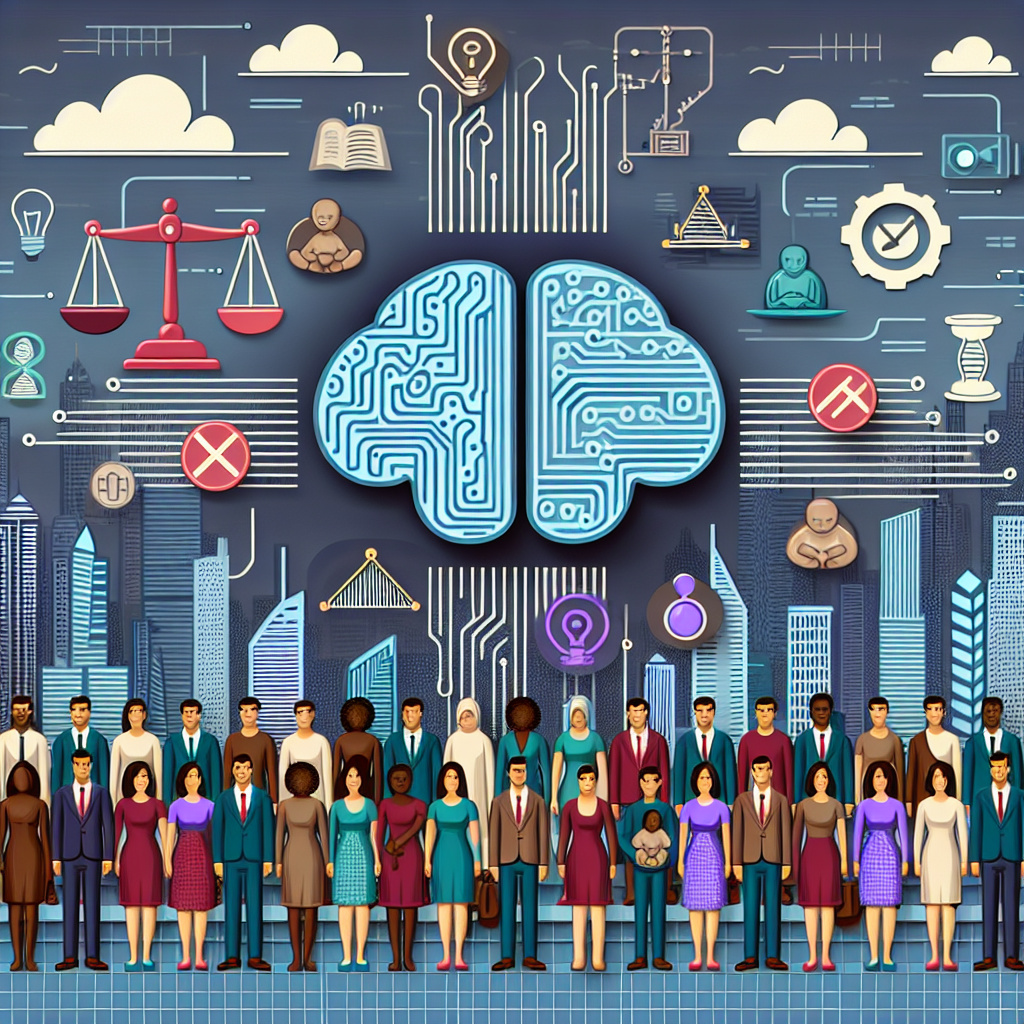In recent years, the development of artificial general intelligence (AGI) has become a topic of increasing interest and concern. AGI refers to a type of artificial intelligence that possesses the ability to understand, learn, and apply knowledge in a way that is similar to human intelligence. While the potential benefits of AGI are vast and exciting, there are also significant ethical implications that must be considered as this technology becomes more prevalent in society.
In this article, we will explore the ethical implications of AGI in society, including issues related to privacy, security, employment, and decision-making. We will also address some frequently asked questions about AGI and its impact on society.
Privacy
One of the major ethical concerns surrounding AGI is the issue of privacy. As AGI systems become more sophisticated and capable of collecting and analyzing vast amounts of data, there is a growing risk that personal information could be misused or exploited. For example, AGI systems could potentially be used to track individuals’ movements, monitor their communications, and make decisions about them without their consent.
To address these concerns, it will be important for policymakers and developers to establish clear guidelines and regulations regarding the collection and use of personal data by AGI systems. This may include requiring informed consent from individuals before their data is collected, ensuring that data is stored securely and anonymously, and providing individuals with the ability to access and control their own data.
Security
Another ethical concern related to AGI is the issue of security. As AGI systems become more powerful and autonomous, there is a risk that they could be hacked or manipulated by malicious actors. This could have serious consequences, such as causing physical harm, disrupting critical infrastructure, or undermining democratic processes.
To mitigate these risks, it will be important for developers to prioritize security in the design and implementation of AGI systems. This may include incorporating robust encryption and authentication mechanisms, regularly testing and updating security protocols, and collaborating with cybersecurity experts to identify and address vulnerabilities.
Employment
The rise of AGI also raises ethical questions about the impact on employment. As AGI systems become more capable of performing a wide range of tasks, there is a concern that they could displace human workers and exacerbate inequality. For example, AGI systems could potentially automate jobs in industries such as manufacturing, transportation, and customer service, leading to job losses and economic upheaval.
To address these concerns, it will be important for policymakers to develop strategies to support workers who are displaced by AGI technology. This may include providing retraining programs, offering financial assistance, and creating new job opportunities in emerging industries. It will also be important for companies to consider the ethical implications of using AGI to replace human workers and to prioritize the well-being of their employees.
Decision-making
Finally, the development of AGI raises ethical questions about decision-making. As AGI systems become more autonomous and capable of making complex decisions, there is a concern that they could exhibit bias, discrimination, or unethical behavior. For example, AGI systems trained on biased data sets could perpetuate existing inequalities and injustices in society.
To address these concerns, it will be important for developers to prioritize transparency and accountability in the design and implementation of AGI systems. This may include ensuring that decision-making algorithms are explainable and auditable, allowing for human oversight and intervention, and incorporating ethical considerations into the design process. It will also be important for policymakers to establish guidelines and regulations to ensure that AGI systems are used ethically and responsibly.
FAQs
Q: What is artificial general intelligence (AGI)?
A: AGI refers to a type of artificial intelligence that possesses the ability to understand, learn, and apply knowledge in a way that is similar to human intelligence. Unlike narrow AI, which is designed to perform specific tasks, AGI is capable of generalizing and adapting to new situations.
Q: What are some potential benefits of AGI?
A: Some potential benefits of AGI include improved efficiency, productivity, and decision-making in a wide range of industries. AGI systems could also help to address complex challenges in areas such as healthcare, climate change, and education.
Q: What are some ethical concerns related to AGI?
A: Some ethical concerns related to AGI include issues of privacy, security, employment, and decision-making. For example, there is a risk that AGI systems could misuse personal data, be hacked or manipulated by malicious actors, displace human workers, and exhibit bias or discrimination in decision-making.
Q: How can we address the ethical implications of AGI?
A: To address the ethical implications of AGI, it will be important for policymakers, developers, and companies to prioritize transparency, accountability, and responsibility in the design and implementation of AGI systems. This may include establishing clear guidelines and regulations, incorporating ethical considerations into the design process, and prioritizing the well-being of individuals and society.
In conclusion, the development of artificial general intelligence (AGI) has the potential to revolutionize society in profound ways. However, it also raises significant ethical implications that must be carefully considered and addressed. By prioritizing transparency, accountability, and responsibility in the design and implementation of AGI systems, we can ensure that this technology is used ethically and responsibly to benefit individuals and society as a whole.

